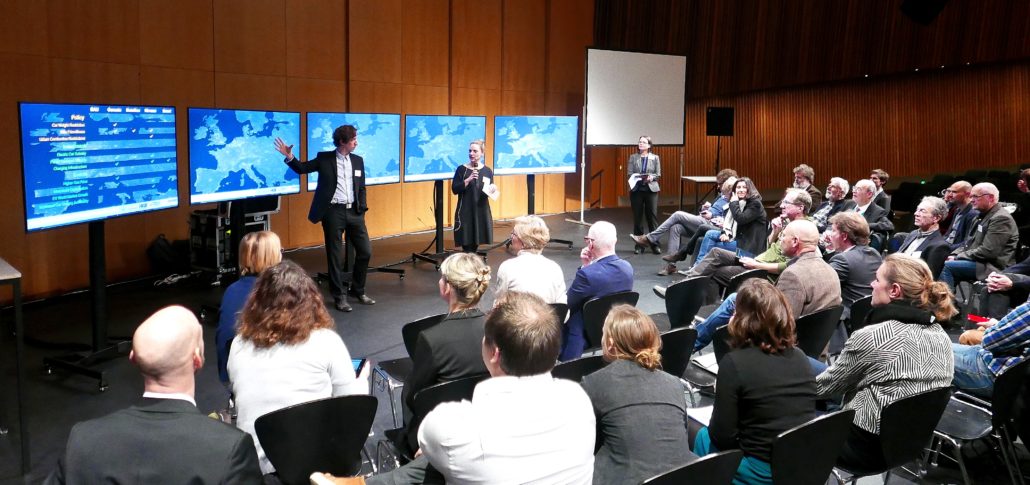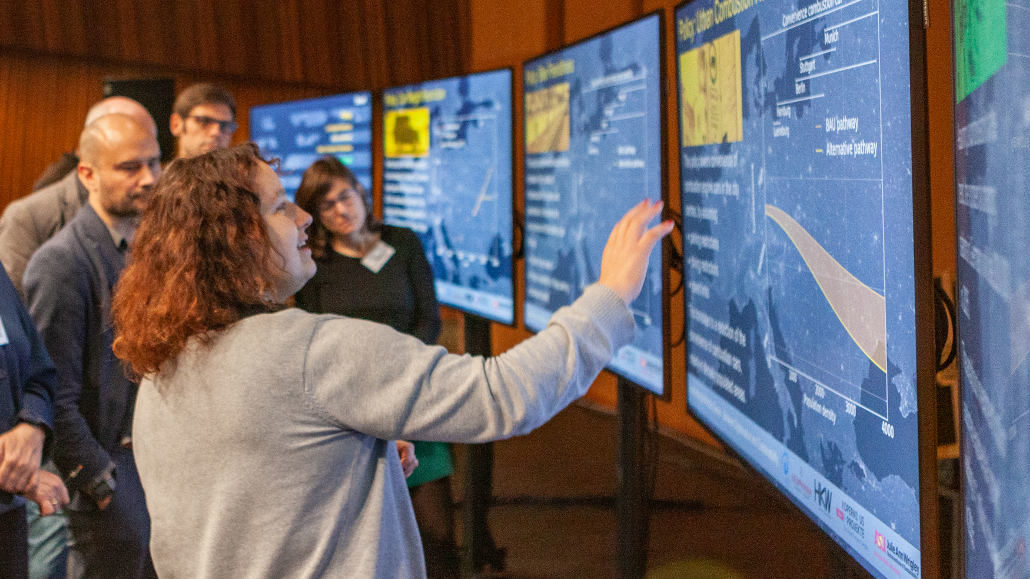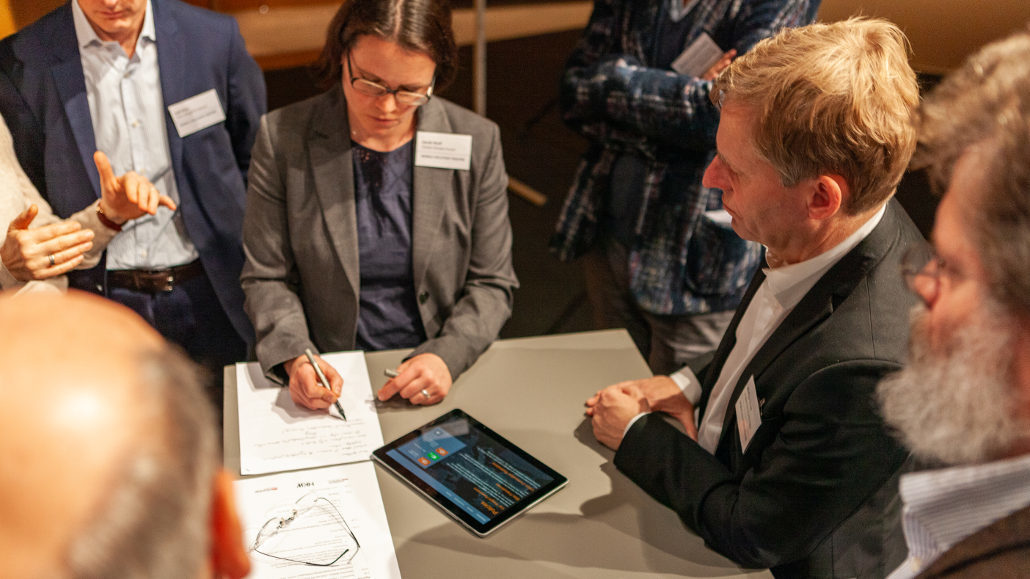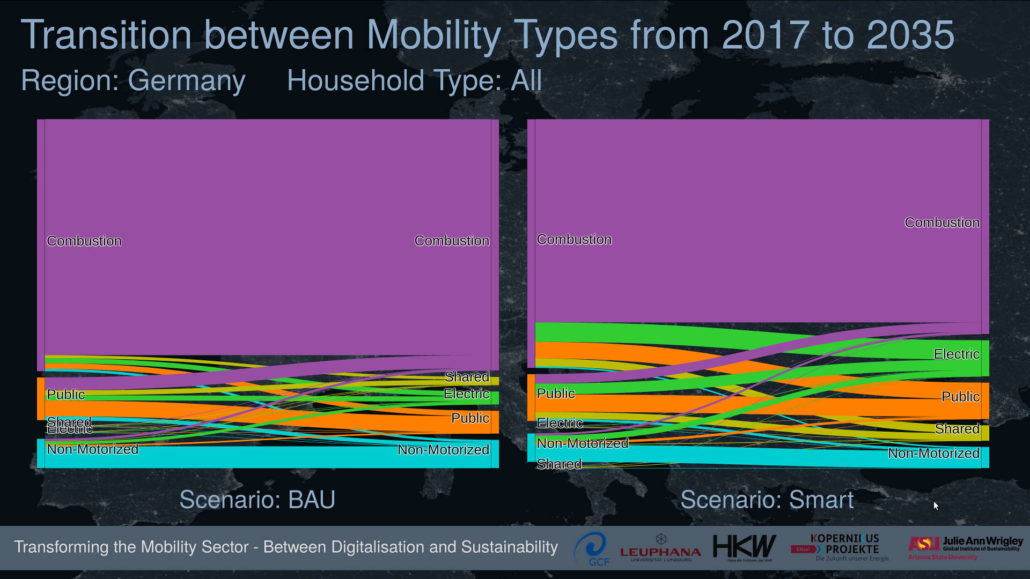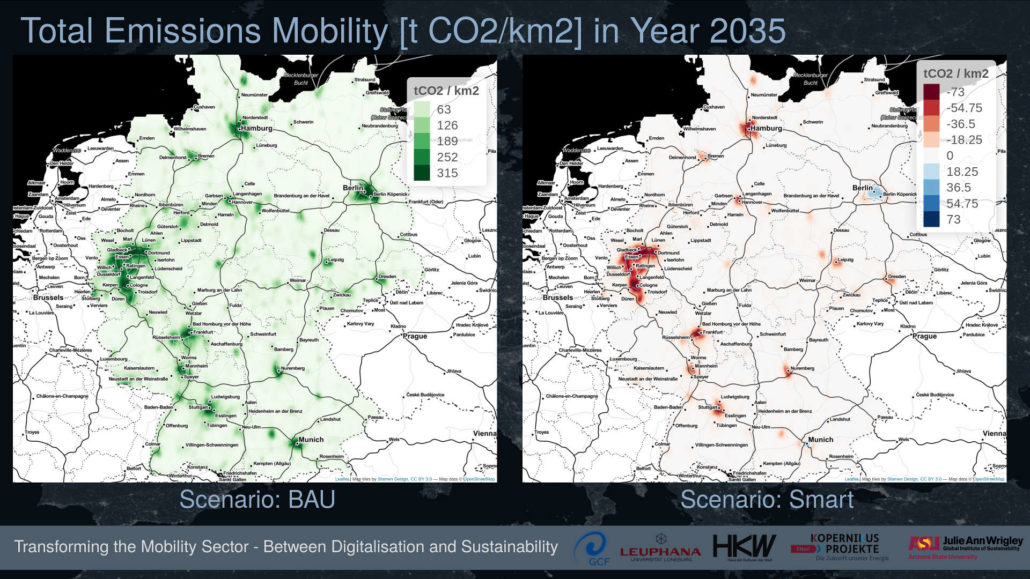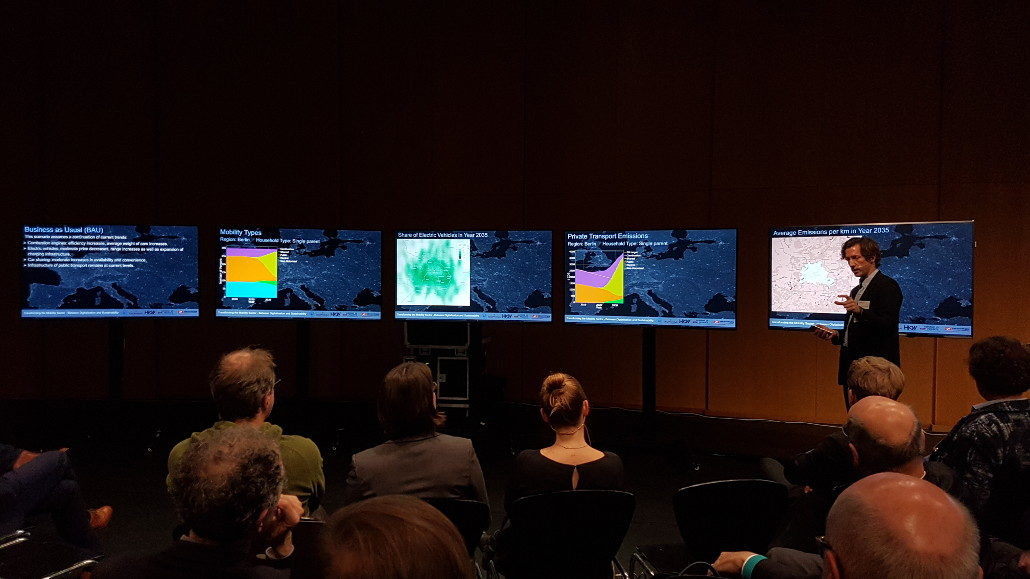A detailed description of a DT event can be found here: Decision Theatre on sustainable mobility
Definition
A Decision Theatre (DT) is an IT-supported participatory method used in research on societal challenges. It enables interaction and collaboration between science, policy and society by supporting discussions with visualizations of empirical information as well as mathematical modelling and simulation of possible futures, displayed on large screens surrounding the group. In DT workshops, stakeholders can experiment with models, composing and interactively comparing scenarios. The visualized computer output can be continuously adapted to reflect the discussion progress.
Usually a DT event is divided into three parts. First there are input presentations by local stakeholders and experts, introducing empirical aspects and a simulation model. These are followed by work with the model in smaller groups and discussions of the group works outcomes. At the end, a general discussion and feedback block wraps up the workshop. The duration of a workshop can vary between two hours and a full day, depending on the scope and intentions. Ideally the same group of stakeholders can take part in several DT workshops over time to create an iterative communication and model adaption process. Results and open questions of past events can thereby flow into model enhancements and shape following events.
Development
As the name implies, the original focus of the Decision Theatre was on supporting decision making, in fact, a main aim was to give greater weight to quantitative data and modelling in complex decision processes. The method was mainly developed at the Arizona State University (ASU) [DT @ ASU] and has lately been adapted by the Global Climate Forum (GCF) by using multi-agent models, allowing participants to identify with some of the modeled agents. The first application of GCF’s DT concerns a sustainable mobility transition.
At the ASU DT events take place in a specially equipped room; GCF has created a lean and mobile version, that relies on portable and widely available hardware (e.g. screens can be rented at the event location), so that the event can come to the stakeholders, which can improve the acceptance and attendance. During the COVID19 pandemic the method has been transformed to remote events as well, so it can take place using a video conferencing software.
Research
Three key elements of a DT event have been distinguished: the dialogue format for bringing together researchers and stakeholders is based on socio-ecological, including socio-economic, data and understanding, as well as mathematical modelling and simulation. This “Decision Theatre Triangle” is further discussed in this paper [GCF working paper].
|
Participant No |
Participant organisation name |
Short name |
Country |
|
1 |
Global Climate Forum |
GCF |
Germany |
|
2 |
Arizona State University |
ASU |
USA |
|
3 |
Freie Univeristät Berlin |
FUB |
Germany |
|
4 |
Zuse Institut Berlin |
ZIB |
Germany |

